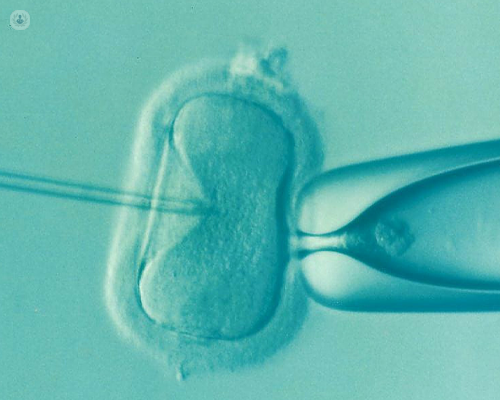Exploring IVF: Your concerns and questions answered
Autore:Are you considering IVF, but have so many questions you don’t know where to start? Leading senior fertility specialist Dr Anu Chawla is here to help. She looks at ten of the most popular concerns regarding IVF in this informative article, including costs, success rates and the overall process.

How much does IVF cost?
One of the first questions prospective IVF patients ask is about the cost. On average, clinics in the UK advertise a rate between £3,000 – £4,000 per IVF cycle. It can be expensive, and that’s not including medications. It’s important to explore all financial aspects, including insurance coverage, financing options and any hidden fees. Some clinics offer payment plans or packages which include multiple cycles at a discount.
IVF success rates
Success rates are a significant factor in selecting the right IVF clinic. These rates vary based on:
- Age;
- cause of infertility and;
- clinic expertise.
Younger women have higher success rates in general. Statistics specific to your situation can provide you with a realistic expectation of outcomes.
What are the side effects and risks of IVF?
The hormonal treatments involved in IVF can cause side effects including:
- headaches;
- bloating, and;
- mood swings.
Ovarian hyperstimulation syndrome (OHSS) and multiple pregnancies are also risks. Understanding these and discussing them with your healthcare provider is recommended in order to make informed decisions.
Process and timeline
The IVF process has four stages:
- ovarian stimulation;
- egg retrieval;
- fertilisation;
- embryo transfer and a two-week wait for pregnancy confirmation.
The process typically spans four to six weeks per cycle. Knowing what to expect at each step can help reduce anxiety and prepare you for future developments.
Which are the best IVF clinics?
Selecting the right clinic can significantly impact your IVF experience.
For example, it would be a good idea to look for clinics with high success rates, positive patient reviews and experienced medical teams.
Factors such as location, clinic facilities and care offered should also be considered.
Fertility medication
Medication plays a vital role in stimulating the ovaries in order to produce multiple eggs. Common drugs include:
- Clomiphene;
- Gonadotropins and;
- GnRH agonists/antagonists.
They can have side effects, so it’s important to discuss this with your doctor.
Recommendations regarding lifestyle and diet
IVF success rates can be influenced by lifestyle choices. Maintaining a healthy weight, eating a balanced diet rich in antioxidants, avoiding alcohol and smoking and managing stress can assist in improving outcomes. It’s also been suggested in some studies that acupuncture and specific supplements may also enhance fertility.
Emotional and psychological support
The emotional toll of IVF can be huge. Joining support groups, attending counselling sessions and connecting with others going through similar experiences can assist in providing much-needed support. Mental health professionals that specialise in fertility issues can provide coping strategies and emotional guidance.
IVF using donor eggs/sperm
Using donor eggs or sperm is necessary for some patients. This can increase chances of success, particularly for older women or those with severe infertility issues. Understanding the selection process, legal implications and success rates linked with donor gametes is essential in making informed decisions.
Issues with male subfertility
Male infertility is connected to approximately 40 to 50 per cent of infertility cases. Treatments such as intracytoplasmic sperm injection (ICSI) can provide help in instances of low sperm count or motility. Evaluating male fertility early on can ensure all aspects of infertility are looked at. Beginning the IVF journey is a significant step filled with hope and challenges.
By seeking reliable information and comprehending these common concerns, you can approach your treatment with greater confidence and clarity. It’s advised that you should always consult with your healthcare provider to tailor information to your specific needs and circumstances.
The IVF journey involves costs, learning about success rates, understanding side effects and the overall process. Key considerations include selecting the best clinic, understanding fertility medications and adopting a healthy lifestyle. Emotional support is vital, as are options like donor eggs or sperm. Male fertility issues also play a significant role. By addressing these common concerns, patients can approach IVF with confidence and clarity.
Want to know more about how Dr Chawla can help you regarding IVF? Arrange a consultation with her via her Top Doctors profile.


